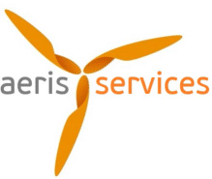Q: Should I accommodate employees who wish to voluntarily self-quarantine, and how do I keep my operations running if multiple employees wish to stay home?
A: First, it’s important to stay current on CDC guidelines concerning best practices for employees who’ve been exposed to COVID-19. The CDC has issued new guidance on return-to-work procedures for employees who have been exposed to COVID-19: you can view it here.
Secondly, fear is understandable in our current climate, but we don’t have to let it control our decisions, especially when it comes to running a business. Unfortunately for all of us, this pandemic has created uncharted territory for us to cover from a legal stance. So, what are you required to do? Legally, nothing. But it’s hard to give a broad stroke answer. Ultimately, as the employer, you do have the right to require an employee to come into the office. If the employee refuses simply out of fear of exposure to COVID-19, at that point they are refusing available work by not coming into the office as instructed. COVID-19 high-risk individuals may still be eligible for unemployment benefits; however, under normal circumstances when an employee refuses available work, they do not qualify for unemployment benefits and this may count as a voluntary self-termination.
If the employee is not eligible for Emergency Pay Sick Leave Act (EPSLA) the employee is choosing to stay home. As this implies, the employee has made a choice to stay home when work is available to them. At this point, when the choice is made to stay home and circumstances are not forcing them to stay home, you no longer have an obligation to entertain paid leave or work from home accommodations. However, is that your best course of action?
Well, that’s up to you and the needs of your business, your values and principles. The interactive questionnaire Achilles Group has created for this type of situation is a great place to start by determining if you can make an accommodation. Can you accommodate modified work hours or work from home? Depends on the position and the interface with other departments or the public. Can you accommodate a part-time position? Depends – is the employee’s skill set highly specialized or valuable to the company and you’d rather work with a part-time position than lose them altogether? Can the employee shift to an independent contractor or consultant role and continue to work for you when they have time? Depends – rarely can you take an existing direct employee and shift them into a contract role without playing afoul of the Department of Labor (DOL) and IRS regulations for independent contractors.
Regardless, Achilles Group cautions that once you make an accommodation for one person, you should be prepared to make accommodations for others in similar or the same circumstances as well. Consistency is the key to navigating uncharted territory such as this, and working with your representative at Achilles is the best way to ensure a reasonable and consistent approach.














































